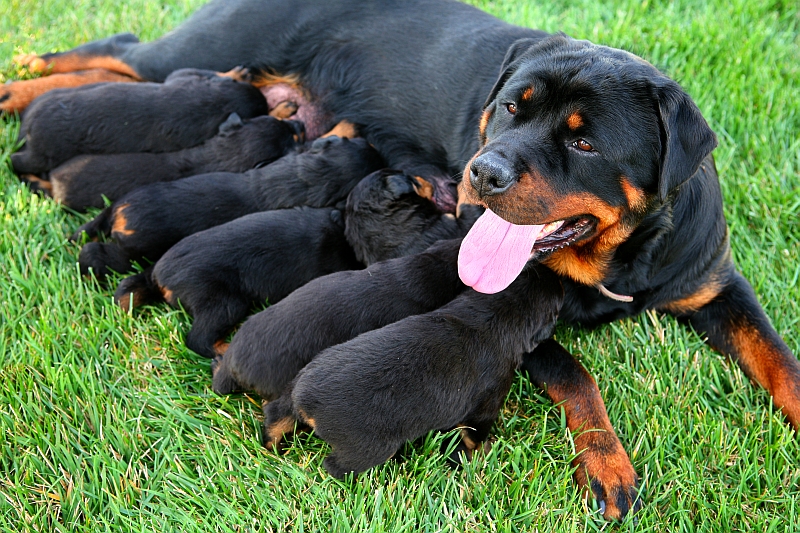Pregnancy is an exciting season, whether you are a human about to have a child, or if you are a pet owner about to welcome a new litter of puppies or kittens. But as with any significant change, there are plenty of challenges along the way, and important facts to be aware of while caring for the new mother. Here are some crucial tips to keep in mind if your cat or dog gets pregnant.
Important Pregnancy Details
Vaccinations: Before a cat or dog is bred, they will have a better chance at a healthy pregnancy if they are given the right vaccinations to begin with. Schedule a checkup with the vet, and confirm that your dam or queen is up to date on her injections, since the mother’s body will be the sole source of immune system protection for her young the first 6-8 weeks of their lives. When puppies and kittens are about 2 months old, they can start receiving their own vaccines, but until then making sure the mother is healthy is the best defense.
Nutrition: You’ve heard us say it before and we will say it again, nutrition, nutrition nutrition! The best protection against diseases, diabetes, and weakness, etc. is a healthy and balanced diet. Now is not the time to cut corners at the supermarket, by buying any pet food that is on sale. Do your research about the quality of the food, the ingredients, and what kind of nutrients a pregnant animal should be provided. A mix of dried food, canned food, supplements, and vitamins will help keep your pet in good condition with the ability to recover well should they ever become ill. Your dog or cat will need to eat consistently 2-3 times per day, having plenty of water and food available to her throughout the day. The better care your pet receives, the stronger their litter will be.
Gestation. For cats and dogs, a typical pregnancy lasts roughly 61-65 days. When it comes to breeding pets, try to breed a female with a smaller male so that the offspring will be easier for the mom to deliver. Imagine a female Chihuahua trying to deliver the pups of a Rottweiler. Yikes!
Nesting: Right around day 60-62 of the gestational period, your dog or cat might start showing signs of a behavior typically referred to as “nesting.” This means she will start literally sniffing out a good place for her to deliver her babies. This will likely be some quiet place that is dark, removed and peaceful. For cats it is usually in a closet, or in a basket, etc. Dog gravitate toward dark corners, under tables, etc. and they might bring a blanket, or a favorite toy with them to increase the sense of comfort and safety.
Labor: Before your pet starts going into pre-birth (labor), the cat or dog will likely stop eating, and their body temperature will be rather lower than usual. The pet will remain focused and alert even though she is not eating. She might pant, become restless, and start pacing back and forth by her designated birthing area. Once the contractions begin, the animal will lay on her side, and may moan off and on while the muscles in her uterus contract. Unlike humans, cats tend to labor briefly for about 60 minutes, while dogs are usually finished birthing within 30.
Typically, the pet will not need help during the process of birthing and caring for her young, as she instinctively knows to lick the newborn until it begins breathing, and she will eat the placenta. However, if for whatever reason the mother does not, you can assist her by peeling away the sac and rubbing the young pup or kitten until it begins to breathe. But once the animal shows signs of life, nestle him right back to his mother.

